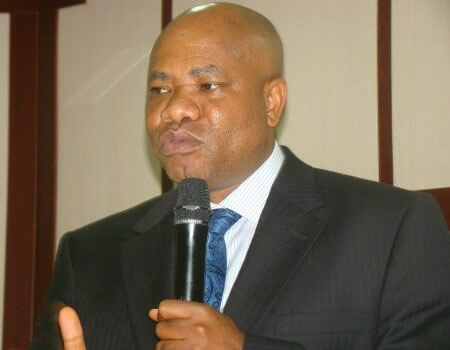News
Alleged $2.2m Fraud: Court Adjourns Trial Of Ex-NHIS Boss, Oluwafemi Thomas

A Federal High Court in Lagos has adjourned till May 15 and May 16 the continuation in the trial of Oluwafemi Thomas, a former Executive Secretary of the National Health Insurance Scheme (NHIS).
Thomas is standing trial alongside a bureau de change operator Kabiru Sidi, on a four counts charge bordering on 2.2 million dollars money laundering.
The are being prosecuted by the Economic and Financial Crimes Commission (EFCC) and were first arraigned in 2016, before Justice Saliu Saidu.
They had each pleaded not guilty to the charge and were granted bail.
The case was however, re-assigned to Justice Ayokunle Faji, after Saidu was transferred from the Lagos division of the court.
Trial has since commenced in the suit and the defence had opened its case and still giving evidence in court.
When the case was called on Monday, Mr Ekene Iheanacho, appeared for the prosecution while Mr O. Gbolahan appeared fro the first defendant.
The second defendant, however, informed the court of the absence of his counsel, on the grounds of ill health.
On his part, the prosecutor expressed dissatisfaction with the situation, adding that he had come in from Abuja since last week hoping to take this case.
He, however, said that in the circumstance, he would accept an adjournment.
While noting that the second defendant was entitled to be represented by a counsel, the court also noted that the defendant had narrated to the court his efforts to secure a counsel.
The court consequently, adjourned the case until May 15 and 16 and urged the defendant to ensure he be present in court with his counsel on the next date.
The News Agency of Nigeria (NAN) reports that the charge against the defendants has been amended severally, with the defendants taking fresh pleas on each amendment.
They were re-arraigned on March 6, 2019.
The prosecution closed its case in January 2020 , after calling six witnesses and tendering 26 exhibits
The defence on their part filed a no case submission arguing that the prosecution had not made out any prima facie case against them to warrant them to open their defence .
Meanwhile, the no-case submission filed by defence failed, as Justice Faji on March 13, 2020, dismissed their application and ordered the defence to open its case,
An appeal against the ruling of the trial court also failed at the appellate court which delivered judgement on Sept. 30, 2021.
The defence was thus asked to open its case, which is now ongoing.
In the amended charge numbered FHC/L/457C/2015, The EFCC alleged that the first defendant and his wife who is said to be at large, had on July 3, 2015, conspired to move out of the court’s jurisdiction, the sum of 2.19 million dollars said to be proceeds of unlawful activities.
The defendant was said to have procured the assistance of one Bamidele Ibitoye to help move the money, which were proceeds of his alleged unlawful enrichment as a public servant without going through a financial institution.
They were alleged to have concealed the origin of the said sum.
The defendants were also alleged to have made a cash payment of the said sum, to the said Ibitoye, without going through any financial institutions.
The second defendant was alleged to have on July 15, 2015, made a false statement to Mr Afeez Mustapha, an investigating Officer with the EFCC, that he was the owner of the said sum of money.
The offences contravenes the provisions of sections 15 (2), 15(3), and 16(2) of the Money Laundering (Prohibition) Act, 2011.
It also contravenes the provisions of sections 39(2)(b) of the Economic and Financial Crimes Commission (Establishment) Act 2004.


 Top Stories22 hours ago
Top Stories22 hours agoTinubu to confer on Indian Prime Minister Nigeria’s second highest national honour

 Entertainment24 hours ago
Entertainment24 hours agoKizz Daniel to go on music break after upcoming EP

 Entertainment24 hours ago
Entertainment24 hours agoWhy British High Commission installed London phone booth at Lagos Airport

 News22 hours ago
News22 hours ago2027: Ohanaeze Ndigbo Youth Wing speaks on ‘endorsing Atiku’

 Entertainment24 hours ago
Entertainment24 hours agoBobrisky sues EFCC over alleged rights violations(See Documents)

 Entertainment23 hours ago
Entertainment23 hours agoMovie review: See what O.C Ukeje did in Black Mail

 Top Stories22 hours ago
Top Stories22 hours agoWorld Bank ‘uncovers $32m missing funds in Nigeria’s water project’

 Top Stories22 hours ago
Top Stories22 hours agoNollywood Actress, Iyabo Ojo Accused Of Killing Mohbad






